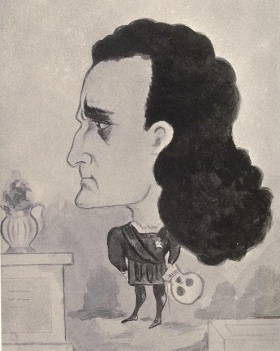| directory |
| home | contact |
|
|||||||||||||||
| search | |||||||||||||||
Shakespeare Quick QuotesFoul deeds will rise,Hamlet's rhyming couplet concludes one of the most intense scenes in the play. Horatio has just revealed to Hamlet that the ghost of Hamlet's father has appeared on the platform and Hamlet is desperate to meet with the ghost himself, hoping to confirm Claudius is responsible for his death. Claudius's "foul deeds will rise"; his guilt will not be kept hidden. Hamlet's belief in this divine justice gives him the strength to push forward - to use all his intellectual gifts to catch Claudius in his guilt. It is not difficult to understand why the Shakespearean scholar Horace Howard Furness concluded these are the pivotal lines in the play: "The dogma, that 'Foul deeds will rise though all the earth o'erwhelm them to men's eyes,' is proved here with fearful import. By this fundamental idea is Hamlet to be explained" (298). Apparently, these lines are also very challenging for even the most skilled actor, due to the burst of intensity required followed by such a quick exit from the stage. One of the most respected Shakespearean actors of all time, Edwin Booth, scribbled down on his study copy of the play that "Of all the hateful rhyming exits this is the worst."¹ ¹ As quoted in The Hamlet of Edwin Booth by Charles Harlen Shattuck (136). Shattuck also gives a detailed account of Booth's delivery of the couplet (gestures, position on the stage and so on). References Shakespeare, William. Hamlet. Ed. Horace Howard Furness. Philadelphia: J. B. Lippincott Co., 1877. Shattuck, Charles Harlen. The Hamlet of Edwin Booth. Urbana: University of Illinois Press, 1969. How to cite this article:__________ Related Articles |

|
©1999-2021 Shakespeare Online. All Rights Reserved.